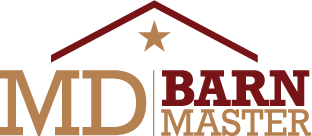 After a tickle of my well-padded ribs, my human proclaimed that I’m fat. I don’t really eat that much but I don’t work very hard either. I certainly haven’t gone from extremely well fed into the obese category! Personally, I don’t see the problem with a little extra padding everywhere, but my human obviously does. So, what really is the big deal? What’s it going to hurt?
After a tickle of my well-padded ribs, my human proclaimed that I’m fat. I don’t really eat that much but I don’t work very hard either. I certainly haven’t gone from extremely well fed into the obese category! Personally, I don’t see the problem with a little extra padding everywhere, but my human obviously does. So, what really is the big deal? What’s it going to hurt?
It looks like the veterinarians say it could hurt a lot if I keep putting on weight and become obese. First, I can’t exercise very hard because I have all that extra weight to move around. So my rides are short and I’m exhausted afterwards. And as summer and its heat are now upon us, I really won’t want to work as the chub that kept me warm through the winter will now keep me extra hot during the summer. Not good to get overheated!
The hazards of being overweight only get worse from there. I am now more likely to have musculoskeletal issues (or joint problems). I don’t think I have any arthritis problems at my young age, but if I did, they could be more painful because of the extra groceries I am carrying around unnecessarily. Most people know that being overweight can predispose a horse to founder or laminitis. Not only can it cause the condition it can also cause the severity of the coffin bone rotation to be more severe. Ouch. Worst of all, I could develop fatty tumors called lipomas in my stomach that could endanger my life. I am still a few years from the average age of this problem (15 years or older) but I don’t even want to take the chance of having lipomas cause a strangulation colic that would require surgery to repair or could take my life.
The last two issues don’t really apply to me because I’m a full grown gelding. But just in case there are any youngsters or mares out there, here they are:
- Overweight foals and yearlings can have high insulin levels after feeding that can contribute to OCD (Osteochondritis dissecans). These are legions on the joints that can be a huge problem. Please keep those young horses at a proper weight!!
- Pregnant mares who are overweight can have an increased duration of their pregnancy and an increased placental weight. After foaling, the mares can have decreased milk production and have problems rebreeding.
And so, I am going to be on a diet and starting a work out plan without it being a New Year’s resolution. Please don’t be hard on my owner, she has been trying to keep my weight under control and was unable to exercise me the last few months (due to my momentary indiscretion which caused an unplanned dismount with a hard landing). I understand my barn lounging is coming to an end and my pasture potato days are sadly over. I will keep you updated on my progress!
Jogging away, Yoo Hoo
MD Barnmaster has a great Horse Care information Card you can download to track diet and exercise plans. If you are unsure how to achieve a healthy weight with diet and exercise for your overweight or obese horses, please be sure to consult with your veterinarian.
The Horse Care Information Card is an easy to use record of your horses feeding schedule so you can rest assured that your horse is maintaining his or her strict dietary schedule. You may also include instructions for any special care or exercise considerations your horse needs.

